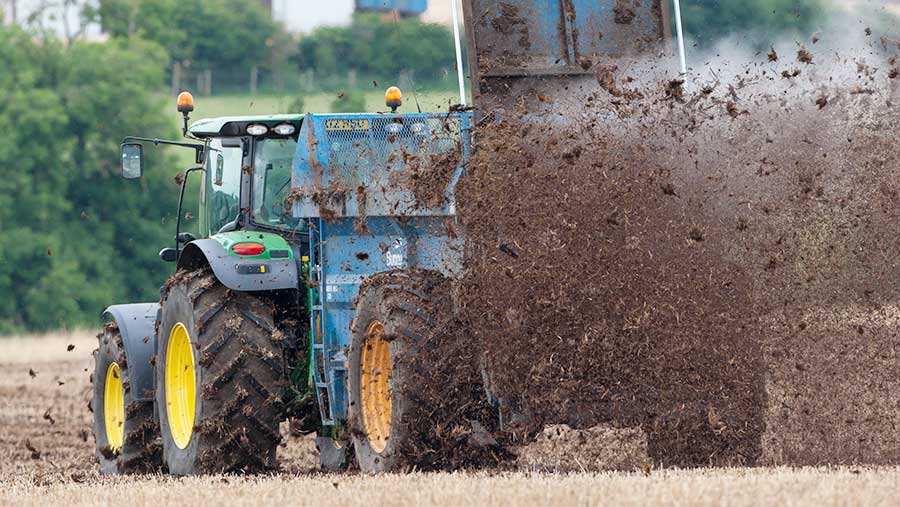No halt to Welsh NVZ expansion plans, despite Brexit vote
 © Tim Scrivener
© Tim Scrivener Hundreds of Welsh farms may still be under threat from tough EU-led environmental regulations, despite the UK’s vote to leave the European Union.
The prospect of a significant expansion of Wales’s nitrate vulnerable zones (NVZs), driven by the EU Commission’s Nitrates Directive, was a reason some farmers voted to leave the EU.
But the Welsh government says it is pressing ahead with what it says is an “important action to address growing water-quality issues arising from diffuse pollution”.
See also: How to meet NVZ rules when expanding a dairy
Unions lobbying against expansion fear up to 2,000 landholders may not be spared tough new limits on fertiliser and manure spreading.
NFU Cymru farm policy adviser Peter Howells said it was unclear how the Welsh government intended to move forward on this issue. “Until we negotiate an exit from the EU, Wales is still subject to the rules and regulations that come with EU membership.
“Once we do exit, and depending on the terms of that agreement, we might still be bound by several pieces of regulation, including the Nitrates Directive.’’
The Welsh government has confirmed that a consultation on possible expansion will get under way in September. “The EU vote will not have any impact on the form of the consultation as we are still a member of the European Union and subject to the relevant EU directive,’’ said a spokesman.
This consultation process is likely to take 12 weeks and, adding on time to consider responses, make recommendations and hear appeals, this would appear to rule out a January 2017 designation.
Mr Howells predicted that mid-2017 would be the earliest the government could hope for.
“We find it odd that the Welsh government is considering the introduction of very draconian and unpopular EU legislation at this time,” he added.
“We believe there’s an opportunity for the industry to work with the Welsh government on a voluntary and more targeted approach, which would deliver better results than a prescriptive and inflexible EU directive.”
About 2.4% of land in Wales comes under NVZ regulations, but additional sites in Anglesey, Carmarthenshire and Pembrokeshire are being considered.
